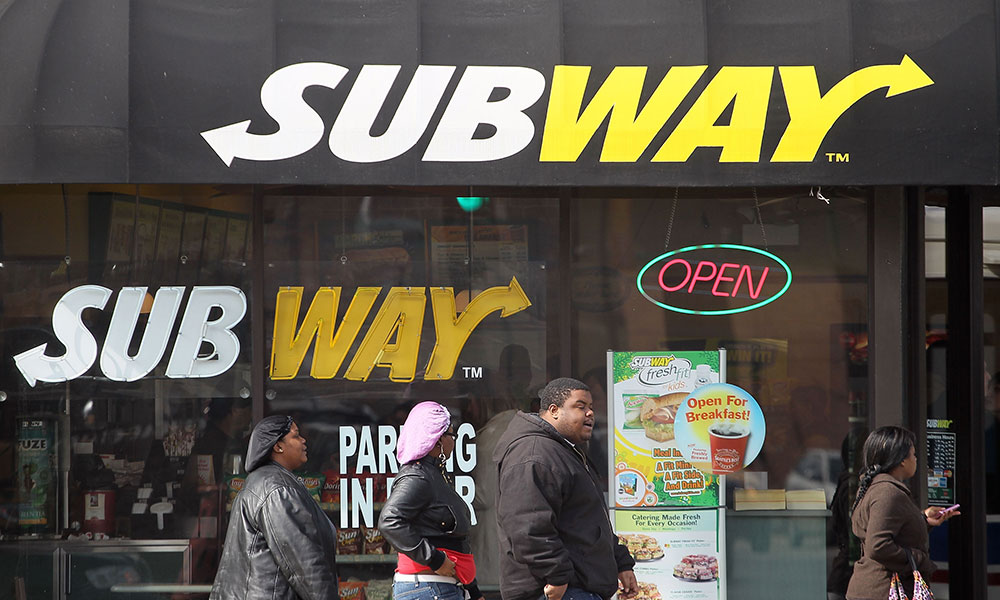
Franchise Association Promises Lawsuit Over Seattle Minimum Wage Law
The International Franchise Association says a new minimum wage law in Seattle—raising wages to $15 per hour over time—unfairly targets its members by treating franchisees differently from other small businesses. And it's planning to take that argument to court.
A city known for its franchises—specifically, for a certain coffee brand—could be facing a lawsuit from a franchise association.
Seattle Mayor Ed Murray this week signed into law an unprecedented minimum wage increase that will over time raise bottom-level wages in the city to $15 per hour.
The law requires large businesses to increase their wage floors to $15 within three years, while smaller businesses and firms that offer health insurance get seven years to comply.
In the end, the city will have a minimum wage that’s more than double the current federal minimum of $7.25 per hour and roughly 60 percent higher than the $9.32 per hour rate for the state of Washington.
On Tuesday, IFA said it would file a lawsuit challenging the law, arguing that it discriminates against Seattle’s 600 franchisees, whom it requires to meet the three-year compliance deadline while other small businesses have seven years. Franchisees “are being punished simply because they chose to operate as franchisees. Decades of legal precedent have held that franchise businesses are independently owned businesses and are not operated by the brand’s corporate headquarters,” IFA President and CEO Steve Caldeira, CFE, said in a statement.
“The city council’s action today is unfair, discriminatory, and a deliberate attempt to achieve a political agenda at the expense of small franchise business owners,” Caldeira continued. “By picking winners and losers among Seattle businesses, this policy flies in the face of all legal precedent and defies common sense.”
I don’t know how I’m going to do it in Seattle. It’s just making it a really unlikely place for me to expand. It’s going to be very difficult.
Examples In Action
One franchisee who could be affected by the wage increase is Chuck Stempler, who runs two AlphaGraphics locations in Seattle. He says the law would treat his business as one that has over 500 employees because of its ties to the corporate parent, despite the fact that he has only 69 employees in his stores.
“I would be disadvantaged to the tune of a very significant number that would reflect in either reduced profitability or increased costs,” he told KIRO-TV.
Matt Hollek, who has eight employees at his Seattle Subway store, has argued that the increase is significant enough that he may have to raise sandwich prices by $1, while scaling back his healthcare offerings.
“I don’t know how I’m going to do it in Seattle. It’s just making it a really unlikely place for me to expand. It’s going to be very difficult,” he told Q13Fox.com.
A Strong Council Voice
Such arguments fell on deaf ears with some members of the Seattle City Council, including Kshama Sawant, a member of the Socialist Alternative party.
“Subways are not your corner mom-and-pop deli,” she said to Q13Fox.com. “Furthermore, even if [they were], the reality is corporations are calling the shots. Why should we feed that model?”
Sawant, the first socialist member of the city council in more than a century, was a driving force behind the law and led a grassroots movement for a tougher version of the bill that would have required all companies to apply the $15 minimum wage immediately. Her amendments were blocked, The Los Angeles Times reported.
But even council members with more moderate stances tended to favor higher wages in light of the city’s growing income disparities.
“To those who have said that the sky will fall if we pass this legislation, let me assure you that the sun will rise tomorrow,” Councilman Nick Licata said, according to the Times. “It will rise seeing people having a better chance to feed their families.”
The IFA statement did not say when the lawsuit would be filed.
Franchisees for chains like Subway could be unfairly affected by a new law, an industry group says. (Photo by Scott Olson/Getty Images)






Comments